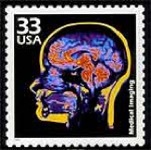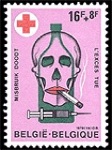Before getting to the interesting 'brain' stuff story, the good news is that I have completed the text for the next book that Dr. Wessel Bentley and I are working on! The working title of the book (that is being published by the Methodist Publishing House) is 'What are we thinking: Reflections on Church and Society by Southern African Methodists' We intend launching this fantastic book at the Methodist Church of Southern Africa's annual Conference in Bloemfontein (September 2008). So, keep an eye on this space!
Now that I have done with that project I am returning to a perennial project that seems to have been a part of my thinking for some years now... A book that considers and discusses some elements of the relationship between neuroscience and Christian theology. I have not yet decided on the final title for the book, the working title is 'Why you're not who you think you are! Adventures in neuroscience and theology'.
Whenever I am working on a project I tend to notice posts and publications that relate to my topic much more frequently. So, my 'neurons' have become quite sensitive to just about everything I can find about... well, neurons!
I came across this interesting post on Boingboing late last night and thought it was quite informative. As my wife (and friends) will tell you, I tend to like gadgets, and I tend to be quite fond of holding on to them! I still have my tiny little Libretto 100CT computer (with a 486DX 233Mhz processor and 32MB of ram...)
Well, this may explain why we struggle to sell things that we own (and like):
We sometimes say that it "hurts" to part with our stuff even if it's junk, and we know it's junk. Behavioral scientists call it the endowment effect, a theory that people put higher values on things once they own them. Turns out though that it actually does hurt to sell something you own, and it has nothing to do with overvaluing. Stanford University and University of Pennsylvania psychologists recreated the endowment effect in volunteers while scanning their brains with MRI. From Nature News:
If the reason for the endowment effect came from the products being overvalued by their owners, (professor Brian) Knutson’s team expected to see a part of the brain called the nucleus accumbus change during the test. It didn’t, “whether buying or selling, the activation in the nucleus accumbus looked the same”, says (co-author professor Scott) Rick.
But others part of the brain, the insula, which has a role in the experience of pain, and the greater mesial prefrontal cortex became activated when the subjects contemplated selling one of their items. If they had ranked that item as one they particularly liked, the change in the insula was greater.
According to this research, this is because of loss aversion, says Rick. “It is not because people are overplaying the positive [aspects of a possession].” Rather, we just become attached to objects we own — so much so that it takes a lot to convince us to part with them.
Link
 Wednesday, February 23, 2011 at 7:45PM
Wednesday, February 23, 2011 at 7:45PM 





